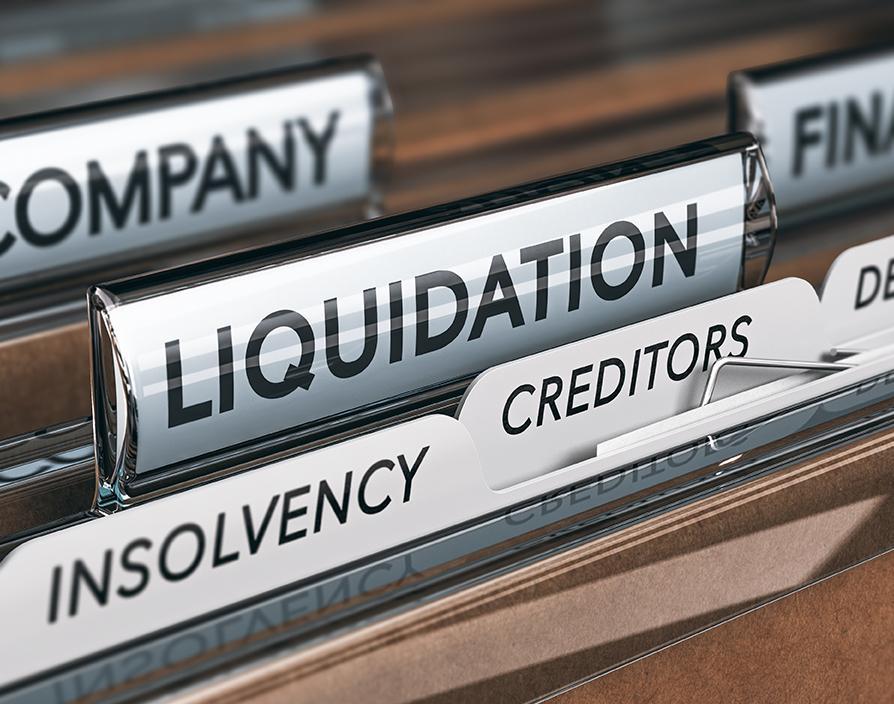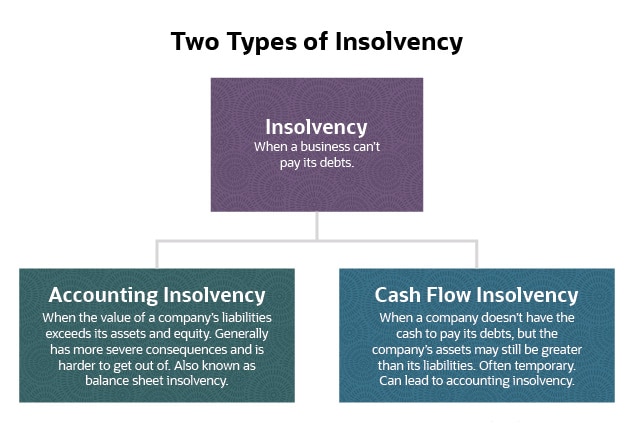7 Easy Facts About Insolvency Practitioner Described
7 Easy Facts About Insolvency Practitioner Described
Blog Article
Insolvency Practitioner Things To Know Before You Buy
Table of ContentsNot known Facts About Insolvency PractitionerThe smart Trick of Insolvency Practitioner That Nobody is Talking AboutInsolvency Practitioner for DummiesThe 45-Second Trick For Insolvency Practitioner8 Easy Facts About Insolvency Practitioner ShownInsolvency Practitioner Can Be Fun For EveryoneInsolvency Practitioner - The Facts
Insolvency is when obligations are more than the worth of the company, or when a borrower can not pay the financial obligations they owe. A company can end up being financially troubled because of a variety of situations that cause poor money flow. When encountered with insolvency, a business or individual can contact lenders straight and restructure debts to pay them off.
Company owners might contact creditors straight and restructure financial obligations into more manageable installations. Lenders are typically responsive to this method because they want to be settled and prevent losses, even if the settlement is on a delayed timetable.
The owner produces a proposition outlining just how the financial debt may be reorganized utilizing price reductions or various other plans for assistance. The proposal reveals lenders how business might create adequate capital for rewarding procedures while paying its financial obligations. Commonly, a forgiven debt may be considered earnings by the Internal Earnings Service (INTERNAL REVENUE SERVICE).
Some Known Details About Insolvency Practitioner
When a company has to pay raised rates for products and solutions, the company passes along the cost to the customer. As opposed to pay the enhanced expense, numerous customers take their service in other places so they can pay much less for a services or product. Losing customers causes losing earnings for paying the business's lenders.
The company might finish up paying huge quantities of cash in problems and be incapable to continue procedures. When procedures stop, so does the firm's income. Lack of revenue results in unpaid bills and financial institutions asking for money owed to them. Some firms become bankrupt since their products or solutions don't progress to fit customers' changing needs.
Insolvency Practitioner for Dummies
Expenditures surpass incomes and expenses continue to be unpaid. Kinds of insolvency include cash-flow bankruptcy and balance-sheet insolvency. Cash-flow bankruptcy takes place when a company has the possessions to cover their financial obligations yet they are in the wrong type, such as genuine estate instead of liquid funds. Balance-sheet insolvency, on the other hand, suggests an absence of possessions in any type of type to cover financial debts.
The IRS states that a person is bankrupt when the total liabilities go beyond total properties. Insolvency Practitioner. A bankruptcy, on the other hand, is a real court order that shows exactly how an insolvent individual or company will certainly settle their lenders, or just how they will offer their properties in order to make the payments
Insolvency Practitioner Can Be Fun For Anyone
If that situation extends longer than prepared for, it can lead to insolvency. When a company or individual is financially troubled, they can not fulfill their economic obligations. Solvency is when you have sufficient funds to cover the payments you go to this web-site owe. A company is considered solvent when they have a lot more properties than liabilities.

Recognizing the elements that can lead to bankruptcy, such as overspending, can help you stop bankruptcy and its effects.
All About Insolvency Practitioner
It is popular that supervisors and officers of corporations (and managers of limited obligation business) owe fiduciary duties to their companies and their shareholders (or participants). These fiduciary obligations are specified by state laws and, though there are variations from state to state, they commonly include a duty of loyalty and a responsibility of care.
The responsibility of care needs directors and policemans to exercise diligence, to make educated choices, and to act in excellent belief so that their activities are in the very best passion of the company. Though beyond the scope of this discussion, some states allow these responsibilities to be restricted either by so noting in the business records or abiding by other needs.
Insolvency Practitioner for Beginners

Beware concerning giving investors favoritism at the expense of financial institutions (e.g., accrediting and funding a dividend or a supply redemption). Beware regarding special therapy between classes of shareholders. Make reasonable initiatives to discover all the realities before taking a specific course of action; directors need to genuinely believe that any type of decisions made remain in the best interests of the corporation in its totality (i.e., choices will be assessed in knowledge due to the impact of such actions on the company).
In any type of personal bankruptcy or insolvency case, repayments made to specific financial institutions at the expenditure of other financial institutions can be clawed back, specifically if there is some link between the company and the creditor. Consider suggesting at an annual stockholder conference (or any various other meeting of investors) a resolution affirming that all previous service decisions and actions taken by the directors and policemans of the company were absorbed excellent confidence after an exercise of affordable treatment.
Insolvency Practitioner Can Be Fun For Everyone
Fully reveal any personal or service relationships with events beyond of deals involving the corporation to avoid the look of a conflict of interest. In assessing potential fund increasing purchases or a sale of possessions of the troubled firm, understand that these transactions might be inspected later taking into account any type of succeeding growth of supervisors' fiduciary responsibilities to include lenders.
Report this page